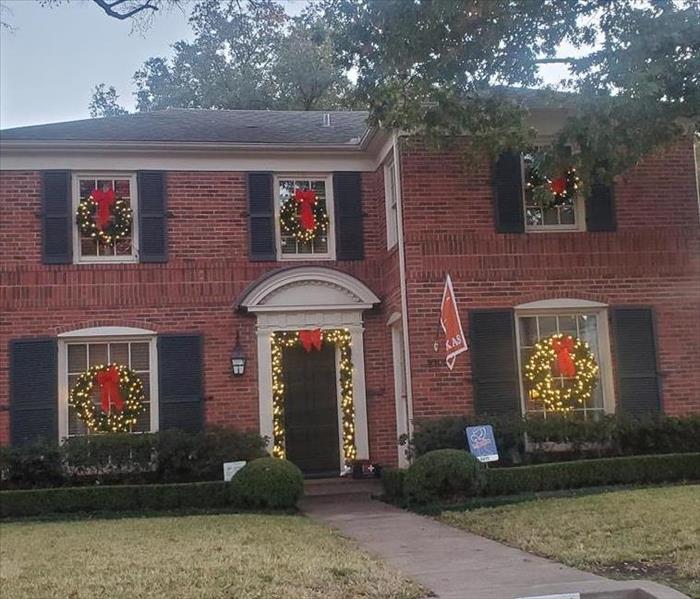Tips to Help Prepare Your Dallas Home for Winter
12/5/2023 (Permalink)
Winter is here, and it’s time to prepare your home for the cold weather. Dallas winters can be unpredictable, so it’s important to be ready for anything. Here are some tips to help you get started:
Find your water shutoff valve: In case of an emergency, it’s important to know where your water shutoff valve is and how to turn it off. According to AAA, the valve is usually located near your water heater tank if your home is built on a slab. If your home has a basement, it will likely be there, in the same places as your outdoor hose bib, just on the other side of the wall. If you have a crawl space, it will likely be there, usually along the front wall of the home. Worst case scenario, if you can’t find your shutoff, and your home is rapidly filling with water, you can turn it off from the main water line, usually located in the front of the house in a covered box 1. If you don't turn it off in time, make sure to find a professional water damage mitigation company.
Keep cold air out of the house: Repair or replace any problem spots on the exterior of your home that could allow for cold air to leak. This includes weather stripping around windows and doors, vents and fans, plumbing, air conditioners, and electrical gas lines. Also, use caulk or insulation to seal any holes, cracks, or small openings. You should also remove all hoses from exterior faucets, and clean gutters and trim any tree branches that could fall on your home 1.
Protect indoor pipes: The air inside your home’s walls, where pipes are located, can be colder than the interior rooms. AAA recommends setting the thermostat at a “reasonable temperature,” to keep the temperature regulated. Also, keep bathroom and kitchen cabinet doors open to allow warmer air to circulate pipes. If you think your pipes might freeze, let cold water drip from one faucet, which should be as far away from the water source as possible to allow water to flow the entire length of the system 1.
Supplies to have on-hand: It’s always a good idea to have supplies on-hand in case of an emergency. These include flashlights, batteries, blankets, bottled water, non-perishable food, and a first-aid kit. Make sure you have enough supplies to last at least three days 1

 24/7 Emergency Service
24/7 Emergency Service
